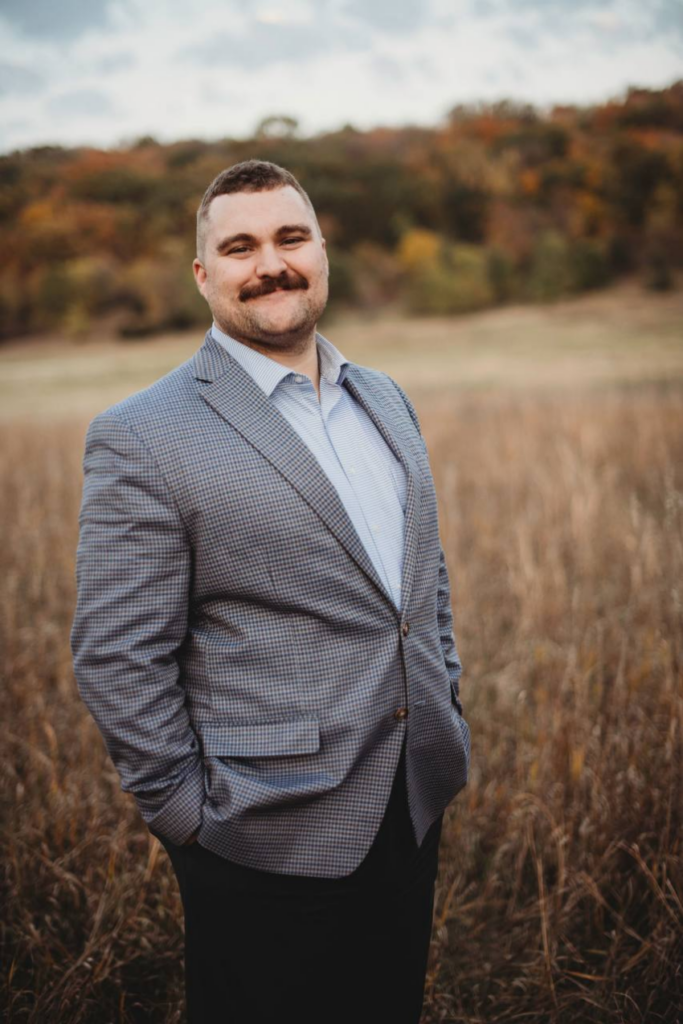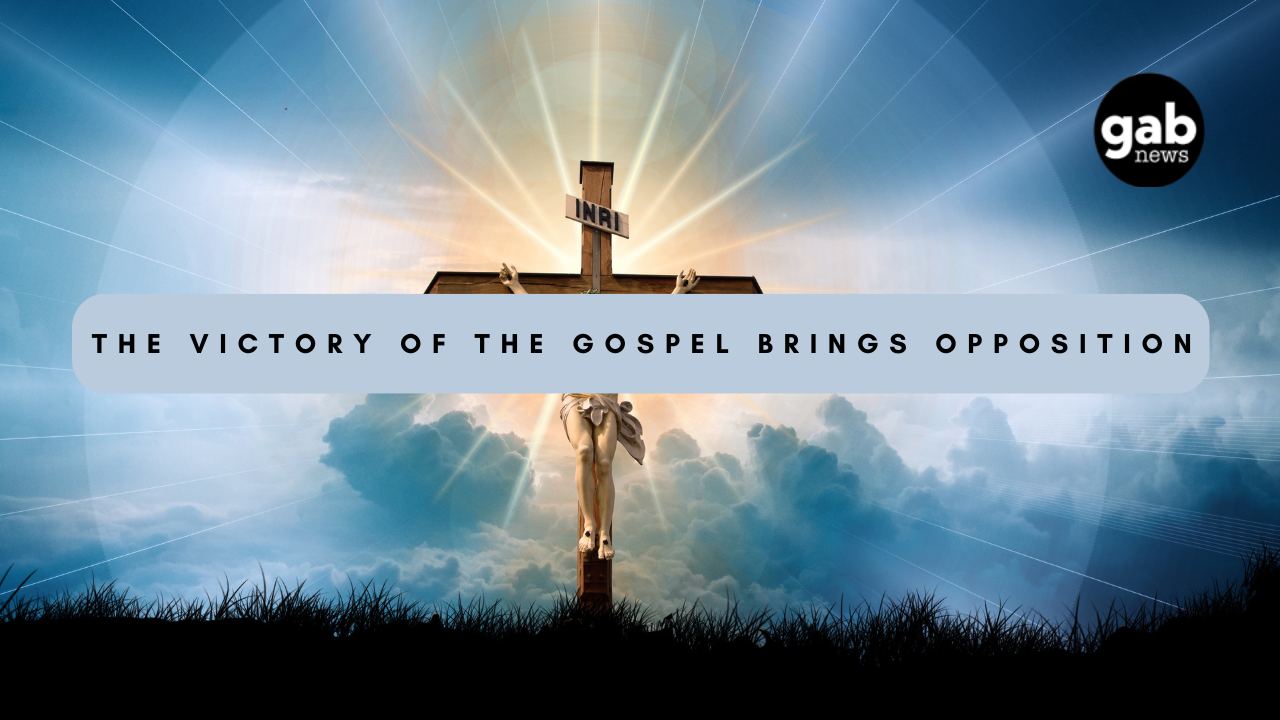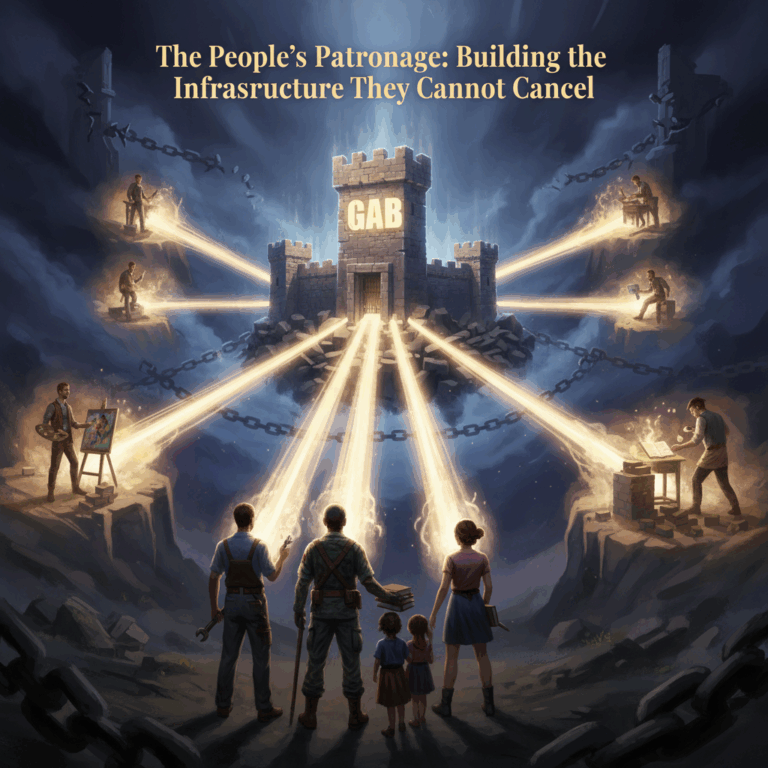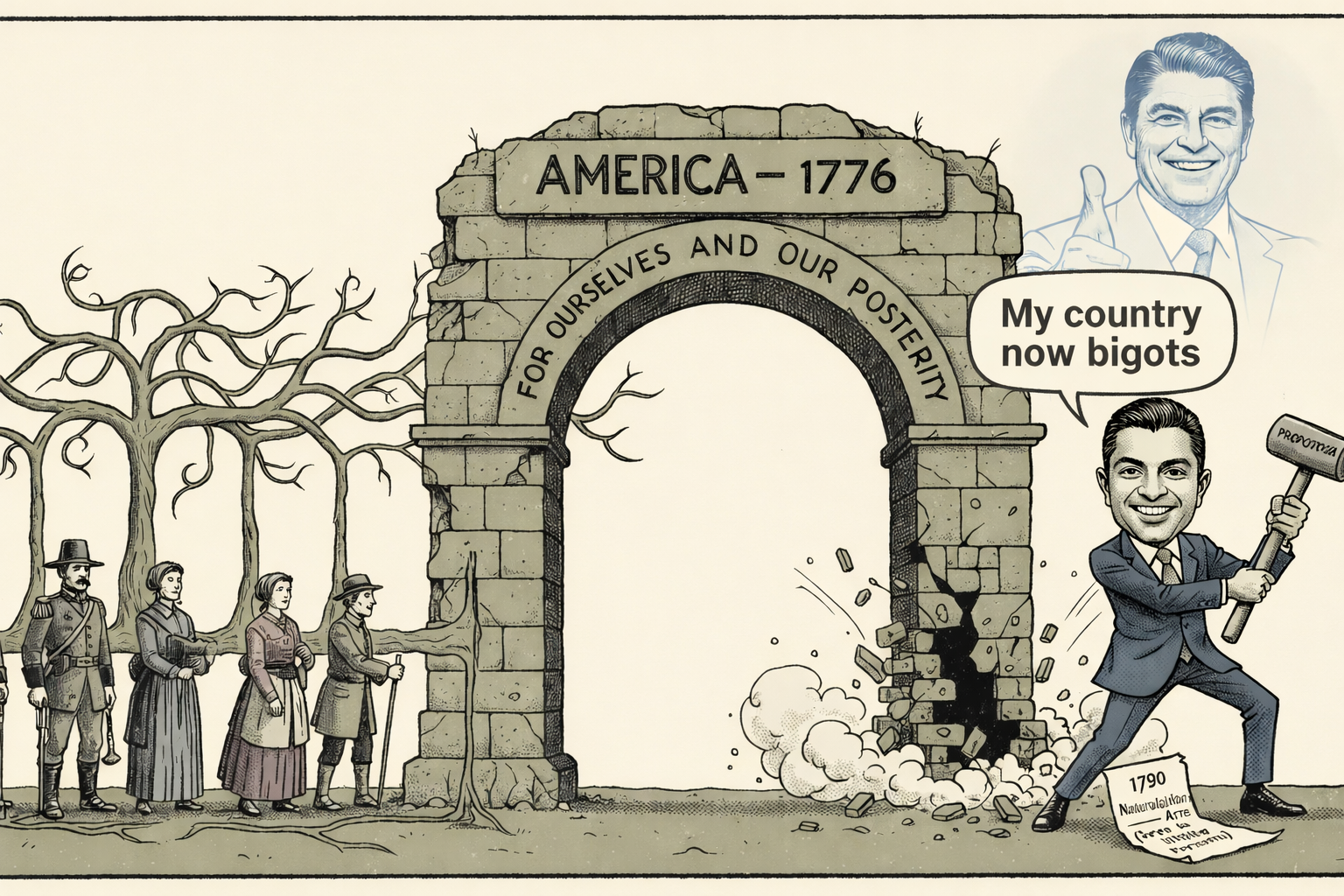Introduction
In the Book of Acts, the people of God are sent out to conquer the world as Israel conquered Canaan in Joshua. The Holy Spirit has come down in power on the Day of Pentecost and great signs and wonders were being done by Him through the apostles. The response to these signs is thousands of conversions, but also opposition from those who hate Jesus Christ. That is the pattern for faithfully preaching the gospel. The gospel is preached with power, people come to know the Lord, and rather than things instantly getting easier, the reward for faithfulness is opposition and conflict.
It is a lesson for us today as we seek to faithfully preach the Word of God in a world that has rejected Him, that success in this mission will not mean everyone likes you and thinks you are “good people.” Success in this mission means you will be hated, you will be hauled before kangaroo courts, and you will be met with people using power to try and stop you. But this, too, cannot stop the victory of Jesus Christ.
12 And through the hands of the apostles many signs and wonders were done among the people. And they were all with one accord in Solomon’s Porch. 13 Yet none of the rest dared join them, but the people esteemed them highly. 14 And believers were increasingly added to the Lord, multitudes of both men and women, 15 so that they brought the sick out into the streets and laid them on beds and couches, that at least the shadow of Peter passing by might fall on some of them. 16 Also a multitude gathered from the surrounding cities to Jerusalem, bringing sick people and those who were tormented by unclean spirits, and they were all healed.
17 Then the high priest rose up, and all those who were with him (which is the sect of the Sadducees), and they were filled with indignation, 18 and laid their hands on the apostles and put them in the common prison. 19 But at night an angel of the Lord opened the prison doors and brought them out, and said, 20 “Go, stand in the temple and speak to the people all the words of this life.”
21 And when they heard that, they entered the temple early in the morning and taught. But the high priest and those with him came and called the council together, with all the elders of the children of Israel, and sent to the prison to have them brought.22 But when the officers came and did not find them in the prison, they returned and reported, 23 saying, “Indeed we found the prison shut securely, and the guards standing outside before the doors; but when we opened them, we found no one inside!” 24 Now when the high priest, the captain of the temple, and the chief priests heard these things, they wondered what the outcome would be. 25 So one came and told them, saying, “Look, the men whom you put in prison are standing in the temple and teaching the people!”
26 Then the captain went with the officers and brought them without violence, for they feared the people, lest they should be stoned. 27 And when they had brought them, they set them before the council. And the high priest asked them, 28 saying, “Did we not strictly command you not to teach in this name? And look, you have filled Jerusalem with your doctrine, and intend to bring this Man’s blood on us!”
29 But Peter and the other apostles answered and said: “We ought to obey God rather than men. 30 The God of our fathers raised up Jesus whom you murdered by hanging on a tree. 31 Him God has exalted to His right hand to be Prince and Savior, to give repentance to Israel and forgiveness of sins. 32 And we are His witnesses to these things, and so also is the Holy Spirit whom God has given to those who obey Him.”33 When they heard this, they were furious and plotted to kill them. 34 Then one in the council stood up, a Pharisee named Gamaliel, a teacher of the law held in respect by all the people, and commanded them to put the apostles outside for a little while. 35 And he said to them: “Men of Israel, take heed to yourselves what you intend to do regarding these men. 36 For some time ago Theudas rose up, claiming to be somebody. A number of men, about four hundred, joined him. He was slain, and all who obeyed him were scattered and came to nothing. 37 After this man, Judas of Galilee rose up in the days of the census, and drew away many people after him. He also perished, and all who obeyed him were dispersed. 38 And now I say to you, keep away from these men and let them alone; for if this plan or this work is of men, it will come to nothing; 39 but if it is of God, you cannot overthrow it—lest you even be found to fight against God.”
Acts 5:12-42
40 And they agreed with him, and when they had called for the apostles and beaten them, they commanded that they should not speak in the name of Jesus, and let them go. 41 So they departed from the presence of the council, rejoicing that they were counted worthy to suffer shame for His name. 42 And daily in the temple, and in every house, they did not cease teaching and preaching Jesus as the Christ.
Signs and Wonders (v. 5:12-16)
After great fear sets in among all the people over the deaths of Ananias and Sapphira, the apostles continue to do signs and wonders in Jerusalem, particularly inside the temple. Many of the people were terrified to go near them but nevertheless viewed them in high esteem. Even after thousands or perhaps tens of thousands have been added to the church already, now even more convert. And they brought all the sick out into the streets to be healed, hoping that even the shadow of Peter would pass upon them.
This is an indication that not just Peter but all the apostles are in a position like Elisha was to Elijah. When the prophet Elijah was taken up and Elisha replaced him, Elisha was given a double portion of the Spirit. Jesus has ascended, similarly to Elijah, and now the apostles are doing even greater signs and wonders than Jesus. A woman touched the hem of Jesus’s garment and was healed, but now, even the shadow of the apostles making contact with a sick person heals them.
And the word had gone out not just in Jerusalem but the nearby cities that the sick and demon-possessed would be healed by them. It is also interesting, as we continue to look at the parallels between Acts and Joshua, that after the destruction of Jericho and Ai, the Gibeonites came to Israel and deceptively made a covenant with them. Immediately following this, the Canaanites in Jerusalem in the surrounding cities made an alliance to attack Gibeon. Here Jerusalem and the surrounding cities are bringing their sick and demon-possessed to the apostles to be healed. These same places are being conquered again, but not through fleshly sword and fire, but by the sword of God’s Word and fire of the Holy Spirit.
The High Priest Strikes Back (v.17-28)
The high priest and the Sadducees were furious. How similar this is to the gospels. Great miracles of healing are being done, and the sick are being made well. How could anyone be upset about that? But the high priest and leaders of Israel definitely were. They snatch up the apostles and throw them into prison to await trial. But at night an Angel of the Lord opens the prison doors, lets them out, and instructs them to go into the temple and “speak to the people all the words of this life.” Notice here the time, it is at night. Deliverance happening at night is a common theme throughout Acts. If you are steeped in the Bible, any time there is a big deliverance at night you immediately think of Passover. But in this Passover, they don’t leave Egypt. They go back and preach.
The next morning the entire council is convened and they cannot find the apostles. Then they discover they are back where they took them the first time, preaching to the people. They took them again, this time without any violence, because they were afraid the people would rise up and stone them to death. The high priest asks them “didn’t we tell you not to preach in this name?” And notice what else he says. “Now you have filled Jerusalem with your teaching, and intend to bring this Man’s blood on us.” Very interesting phrasing there. “You intend to bring this Man’s blood on us.” The High Priest knows what they have done. They know their guilt. They know they should repent, but instead, they double down.
The Apostles on Trial (v. 29-42)
Peter and the apostles answer him and say “We ought to obey God and not men.” The high priest has authority. Ordinarily, you must do what he says. But there is a conflict here between his authority and God’s authority. And God wins that conflict every time. This is an important principle for Christians today. God commands us to worship him. If someone God has given authority opposes us carrying out this command, we should obey God and not men.
Peter goes on to tell the council, the same men that put Jesus to death, that the God of our fathers raised Jesus up, whom you murdered by hanging on a tree. And not only raised Him up, He has exalted Him to His right hand to be Prince and Savior, to give repentance to Israel and forgiveness of sins. Peter says He is exalted for this purpose, to give repentance to Israel. This is your moment to repent, He is not coming in judgment now. You don’t have to have his blood on you. You can repent and be forgiven even for that sin. Peter says they are His witnesses of these things as well as the Holy Spirit , and if you obey Him you can have the Holy Spirit, too.
The response to this is even more fury and rage. They are angry at the apostles and want them dead. Murderous rage. But one man stands up in the council, a respected Pharisee. And asked to send the apostles out so that he could speak freely. Notice the apostles are not inside, so how do we know what was said? Most likely at least one of the members of the Sanhedrin repented, perhaps Saul was present here, and recorded for us what was said. The Pharisee rabbi, Gamaliel stood up and spoke. He charged them to be very careful. There had been many uprisings in Israel in the recent decades. The people in Israel knew Daniel’s prophecy, which gave a timeline of when things would happen. And they were living in the exact time that Daniel said the Messiah would come. So there were a lot of false messiahs rising up. And every single one was crushed almost immediately by Rome. Gamaliel says, if these men are anything like that, we don’t have anything to worry about. But if they are different, if God really is using them, then we will be opposing God.
His words were persuasive and the council sets aside their murderous rage and agrees with him. This brief moment of peace tracks with Joshua’s conquest and the Gibeonite’s covenant with Israel. It is a band-aid of peace, that ultimately sets the stage for further and greater conflict, but destruction is stayed for a moment. The council takes the apostles, has them beaten just so they know they mean business, and command them a second time not to speak in the name of Jesus, and let them go. The response of the apostles is not gloom or despair, it is joy. They rejoiced that they were privileged to add to the sufferings of Jesus. And despite the command, they continued to preach in the temple with boldness that Jesus is the Christ.
Conclusion
What does this passage mean for us today? Faithfully and successfully preaching the gospel results in opposition. God does not always grant gospel success in the same way the apostles had success in Acts. You can preach faithfully for decades and might not have tens of thousands of conversions. That does not mean the gospel is not preached faithfully. It is God who opens men’s hearts, not our skill or ability. The fire of the Spirit is breathed out by the preaching of His Word, and something always happens. If you preach and it seems nothing is happening, it means that judgment is being piled on. People should repent but their hearts are hard. That doesn’t mean the Spirit is not at work. He is! It means hard-hearted people are having judgment stored up more and more.
But what happens if God softens the hearts of hearers and many are converted at faithful preaching? What will happen? There will be opposition by all those with political and cultural power.
It is a great irony that modern evangelical culture believes that churches that faithfully proclaim the gospel will be thought well of. “Our faithful witness will be looked upon by outsiders with respect and admiration.” That is what most evangelical leaders today think. We should be “winsome” and men will like us and want to be Christians. They believe that if your preaching inspires rage and anger from those who hate Christ, you are doing it wrong. But that is the opposite of what we see in Scripture. If your preaching makes all men think you are just swell, that is when you are doing it wrong.
But look at what happens here in the Book of Acts, and throughout the history of the church. When the preaching of the gospel has its effect and God moves and masses of people are brought to Christ, the powers that be erupt into a murderous rage. This is what happened in the Roman persecutions. The gospel comes in, and nothing in the old world works anymore. The gods suddenly are silent. The priests cannot read the entrails of bulls anymore. And it is the fault of these Christians. So the Christians must die. This is what happened in Europe as the gospel went to pagan Europe. This is what has happened even more recently in Africa and among aboriginal peoples. The old world stops working, the gods are suddenly powerless, and the Christians are at fault, and so they are persecuted. And that persecution accomplishes even more success for the gospel. The church is empowered by the opposition not destroyed by it. And the old order implodes and a Christian order comes in.
So the great irony is that modern evangelicalism has it backwards. They are living in light of millennia of gospel success, believing that we still live in that world, and that everyone will really like us for being Christians. But we live in a world today that has rejected Christ and has begun worshipping demons. They don’t think of the things they worship as gods like the ancient pagans did, we are far too “advanced” for that, but that is what they are. We believe science and technology have solved all of humanity’s problems, and the technocratic solutions have liberated us from both God and from the order He has created. But what happens when the gospel has success in this environment where men worship created things? The old world stops working. And you see this today. They thought that their godless society would usher in a utopia of prosperity but it has not. It is failing. It is falling apart. And so, who will be to blame? It is the faithful Christians. With an evangelical elected Speaker of the House, even one who is fairly squishy, the powers that be have already started to attack. Salon published an article recently that “Hamas is not a danger to America, “Christian Nationalists” are.” As their world comes crashing down, faithful Christians are in the crosshairs.
Our response should not be to fear or to despair, but it should be the same as the apostles. To rejoice. We should rejoice that the enemies of God fear the gospel. They fear the power of Jesus’ name. They fear that millions who have lost all hope in them will find it in Jesus. Our response should be the same kind of boldness the apostles had. To go right back into the temple and preach Jesus.
So the charge to you is this: to boldly proclaim your faith in Christ. To know that opposition to Christ does not mean defeat, it is a signal of victory. It is a signal that you are doing things right. Press on, continue on in faith, and trust that Christ will have the victory. In the Name of the Father, the Son, and the Holy Spirit. Amen!

Andrew Isker is the pastor of 4th Street Evangelical Church in Waseca, MN. He is a graduate of Minnesota State University and Greyfriar’s Hall Ministerial Training School, and he has served churches in Missouri, West Virginia, and Minnesota. He is the author (with Andrew Torba) of Christian Nationalism, and the author of the forthcoming book, The Boniface Option. Andrew, his wife Kara, and their five children reside in his hometown of Waseca, MN. He can be found on Gab @BonifaceOption.





